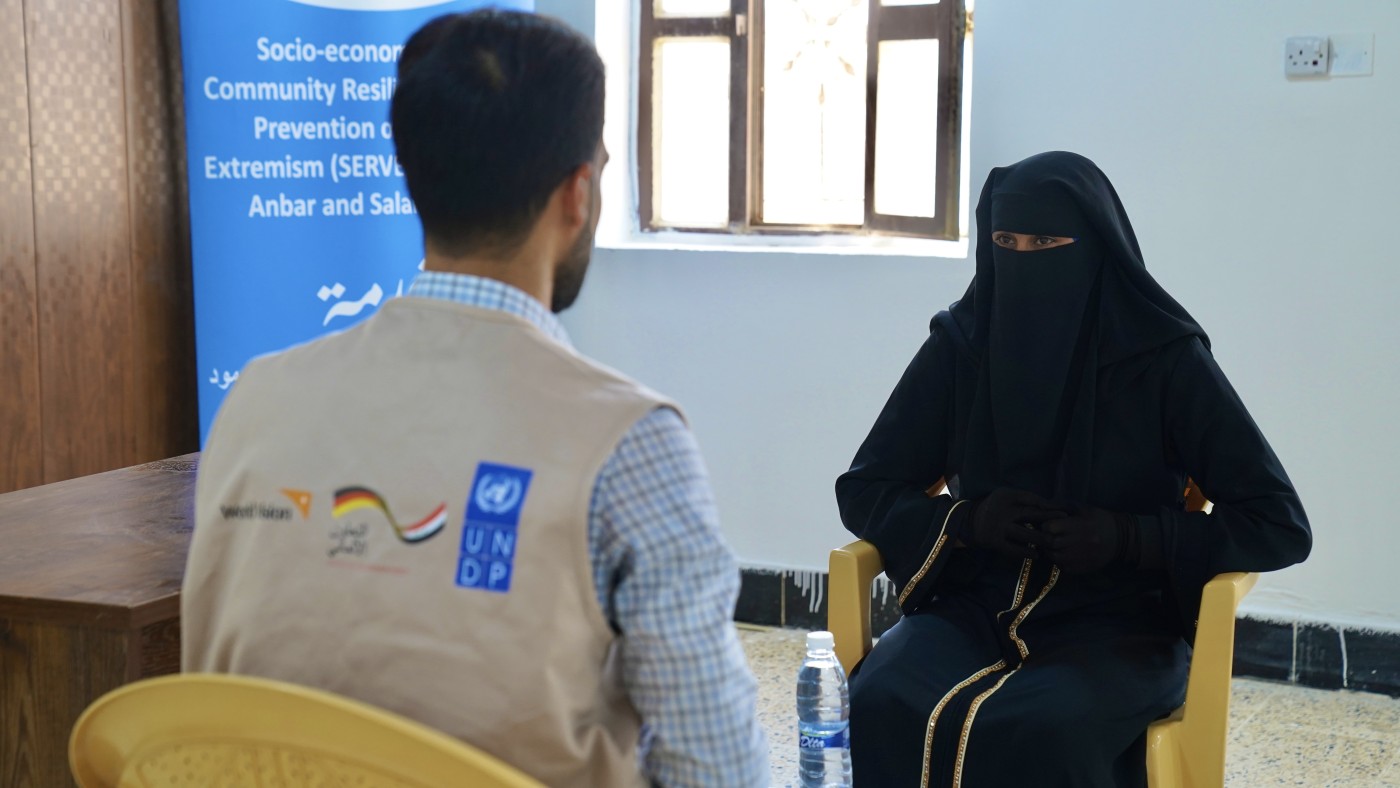RAMADI, Iraq - Mental illnesses have increased significantly in recent years among Iraqi youth due to a variety of social and economic issues, experts say.
The rise of Captagon and other drugs is also playing a major role.
Iraq’s westernmost province of Anbar - a large part of which suffered for years under Islamic State (ISIS) occupation and which borders Syria - has seen an especially sharp increase in cases of depression, anxiety, and other psychological disorders, according to local health professionals.
The experiences of war and psychological trauma experienced by Anbar’s youth have led to many experiencing persistent sadness and loss of interest in daily activities as well as anxiety and post-traumatic stress disorder (PTSD), with recurring memories of horrific experiences affecting their ability to function properly.
However, other factors also play a large role.
Some doctors specializing in psychiatry say the top reason for the spread of mental illnesses among young people in the Anbar province is not related to security, which has improved immensely in recent years.
Economic challenges instead seem to be the major driver, some claim, as young people lack job opportunities amid rising unemployment and increasing psychological and social pressure.
Other specialists cite the use of both prescription and illicit drugs as a major factor behind this surge in mental issues.
Drugs believed to help anxiety ‘instead increase it’
Anbar mental health department chief Yousef Abdullah Al-Ani told The New Region that “the main reason leading to the spread of mental illnesses lies in the high rate of addiction to narcotic substances, especially among young people”.
Both the illicit Captagon and the anti-anxiety drug Lyrica continue to affect users’ psychological health for six months after taking them, he noted.
Over time, symptoms of mental illness appear including “psychosis”, leading to schizophrenia, depression, anxiety, and auditory and visual hallucinations, the mental health professional told The New Region.
Agitation from such drugs “leads to suspicion and jealousy”, which in turn contributes to domestic violence, the specialist claimed.
Another effect is anxiety, he said, despite the fact that Lyrica is prescribed to treat this very problem.
Depression and deterioration of academic abilities in students also tend to result from prolonged use of the drug, compounding pressures already exerted on young people by their families.
Captagon and Lyrica, illicit and abused
Fenethylline was first legally manufactured in 1961 under the name Captagon to treat narcolepsy, fatigue, attention deficiency and behavioral disorders. It had been outlawed by most countries by 1986 after its addictiveness was found to have outweighed any potential clinical benefits.
Captagon pills sold illegally now are reportedly mostly made up of a mix of other amphetamine derivatives and additives including caffeine, quinine and paracetamol with a lesser use of fenethylline.
“Captagon is a highly addictive amphetamine which is used throughout the Middle East, with 80% of the world’s supply produced in Syria,” according to a March 2023 press release appearing on the UK government website.
The website went on to note that trade in the drug props up the current government in Syria as it “is worth approximately 3 times the combined trade of the Mexican cartels,” and that regional players including the “Assad regime, Hizballah, and other Iranian-backed militia all facilitate the captagon industry, and in doing so fuel regional instability and creating a growing addiction crisis across the region”.
Authorities in multiple countries in the Middle East regularly announce large seizures of the illegal drug.
In one drug bust in August, for example, Iraq’s military intelligence directorate announced they had seized over 6,000 Captagon pills in western Anbar.
Earlier this year, the Iraqi prime minister ordered the establishment of rehabilitation centers for drug addicts in all regions except the Kurdistan Region as part of efforts to crack down on the country’s growing drug problems.
Lyrica is instead one of the most commonly prescribed drugs in the US but is known to be addictive, with growing numbers of people both in the West and in the Middle East using it.
“For years, Captagon, an amphetamine that causes euphoria, was the preferred drug for students but this year, Lyrica, a medicine given to people with epilepsy, is being sold on school campuses all over the Kingdom. Users say it induces a feeling of euphoria and make them feel less anxious, effects that have contributed to its popularity,” a 2014 article in the Saudi Gazette stated.
“The anti-anxiety drug pregabalin, often marketed as Lyrica, is now the second most abused drug,” a 2017 article in the UAE-based daily The National noted.
Effects of war on Iraqi youth
Another reason behind a surge in mental illnesses in the province, Ani said, “is the impact of disasters and wars - most notably the ISIS war - on the youth of Anbar.”
He stressed that the war against ISIS had been brutal especially in this westernmost province of Iraq, which borders Syria, and that it had had serious repercussions on the inhabitants of the area with the psychological fallout hitting young people especially hard.
He said many were now living with post-traumatic stress disorder (PTSD) after experiencing periods in which their lives were constantly in danger and seeing their loved ones killed and their belongings and family property lost.
“Cases of anxiety are estimated to have risen by 50%” in recent years, while those of “depression have risen by 25% and of psychosis by about 4%”, Ani said.
“The youth of Anbar have been exposed to horrific experiences, including violence, displacement, loss, kidnapping, and terrorism,” he noted, and they witnessed the loss of their family members and friends, the destruction of their property.”
Most also did not get “the full compensation due for their losses”, he said, contributing to a feeling of deep sadness and anger and loss of a sense of identity and belonging.
Stigma remains about mental health issues
Iraqi society in general has a highly negative view of anyone who is seen as having experienced any sort of mental illness, seeing them as permanently damaged and weak.
However, specialists say that anyone could experience mental illness at some point in their life as is the case with physical illnesses.
The stigma attached to mental issues prevent many from seeking help or even acknowledging their need for support at the psychological level, concerned that they may henceforth be marked for life.
Those working in the sector say that it is necessary to raise awareness about the importance of mental health and to encourage the population to seek help when needed.
In order to address the root causes, however, many say that in addition to establishing centers for psychological support the government should step up reconstruction efforts and create job opportunities and economic stability.
This, they say, would improve psychological health as well.



 Facebook
Facebook
 LinkedIn
LinkedIn
 Telegram
Telegram
 X
X


